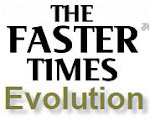In early August, I published a couple of posts discussing the relationship that existed between biphasic animals and the landscape at large. Of particular interest in those write-ups was the way in which organisms – frogs – traversed the landscape and interacted with different ecological communities. The union that the frogs made between distinctly different types of environments was forwarded as an example of “metacommunity”.
Having loosely defined Metacommunities as a set of distinct ecological communities that are biologically entangled through the spatial dispersion of commonly hosted and interacting species, the focal point of those conversations moved to descriptions of some specific behaviors exhibited by spring peeper and squirrel frogs, and how those behaviors could be interpreted through the metacommunity perspective.
To build on those topics, I wanted to recommend a recently found paper that just happens to discuss metacommunities and our previously encountered friend Pseudacris crucifer, the spring peeper.
The paper - Comparative landscape dynamics of two anuran species: climate-driven interaction of local and regional processes - is available here and is free to view and download.
The research details the unique interactions of frogs with the landscape and undertakes an examination of the vernal pools used by peepers and other chorus frogs during reproduction. Of specific focus is the way in which connectivity between breeding sites is maintained during periods of drought and how the frogs respond to such environmental fluctuations. The paper is worth a read as it looks at both the interactions at the local level, and how those local interactions affect ecologies at the scale of a landscape.
My previous posts on the topic can be found here:
To the Woods and Back Again – A Peeper’s Problem
And Here,
The Metacommunity Mannerisms of Foraging Frogs
Werner, E., Relyea, R., Yurewicz, K., Skelly, D., & Davis, C. (2009). Comparative landscape dynamics of two anuran species: climate-driven interaction of local and regional processes Ecological Monographs, 79 (3), 503-521 DOI: 10.1890/08-1047.1
Why is the U.S. fighting Iran?
9 hours ago





























No comments:
Post a Comment